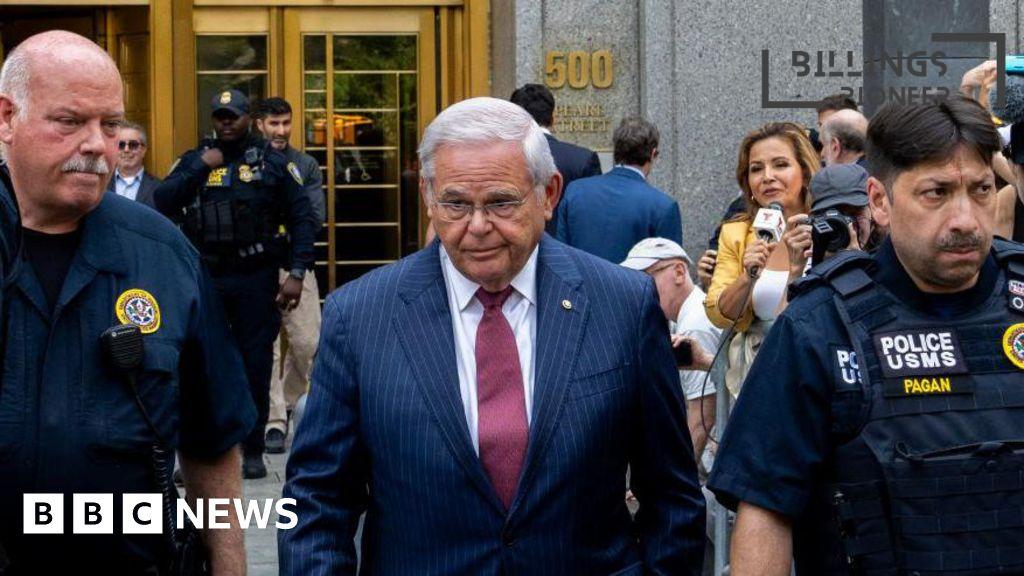In a dramatic turn of events, former U.S. Senator Bob Menendez has been sentenced to 11 years in prison after being found guilty of serious crimes, including bribery and corruption. This ruling has caught the attention of many, as it marks a significant moment in American politics, reflecting the consequences of unethical behavior by those in power.
The Background of the Case
Bob Menendez, who previously served as a prominent senator from New Jersey, was convicted by a jury on 16 counts of bribery and corruption in July. The accusations against him included accepting extravagant gifts in exchange for political favors. Reports indicate that these gifts were quite extensive, involving cash, luxury cars like a Mercedes Benz, and even gold bars. This case has raised concerns about how officials can become corrupted and what it means for the public trust.
Judge’s Remarks and Sentencing
During the sentencing, presided over by Judge Sidney H. Stein in a Manhattan courthouse, the atmosphere was thick with emotion. The judge characterized Menendez’s actions as a betrayal of public trust, pointing out that greed played a significant role in his wrongdoing. While Menendez expressed a sense of deep regret, saying he had lost everything, he also maintained his innocence, claiming that he never committed any crime. This tension made the courtroom a place of contrasting feelings, with some feeling sorry for him while others believed he deserved the punishment.
The Implications of the Sentence
Menendez’s conviction and this lengthy prison sentence are important reminders of the potential consequences when public officials misuse their power. The prosecution sought a harsher sentence of at least 15 years, arguing that Menendez’s actions had undermined voter confidence and corrupted the political landscape. The judge, however, imposed an 11-year term that reflects the severity of the crimes but also acknowledges some of Menendez’s prior public service commitments.
The Co-Conspirators
Menendez was not alone in his legal troubles. Two of his co-conspirators, Fred Daibes and Wael Hana, also faced justice. Daibes received a seven-year prison sentence, while Hana was sentenced to over eight years for their roles in the bribery scheme. These sentences contribute to the growing awareness about accountability for corruption and emphasize the idea that no one is above the law.
Plans for Appeal and Ongoing Controversies
Despite the unfavorable ruling, Menendez intends to challenge the conviction by planning to appeal the verdict. His efforts to clear his name suggest that this story may not be over yet. Furthermore, the situation has garnered public scrutiny regarding his wife’s legal troubles as well. Nadine Menendez is facing trial in March on a related case, which adds another layer to this unfolding political saga.
The Public’s Reaction
The news of Menendez’s sentencing has stirred a variety of reactions from different segments of society. While some view it as a necessary step toward justice, others see it as a loss for public service—Menendez had a long career, with many accomplishments in the Senate before these allegations came to light. This disparity in opinions shows how politics can deeply divide people, especially when discussing ethical standards and accountability.
Looking Forward
As Menendez begins his prison sentence, many are left pondering what this case means for the future of politics in the U.S. Will it inspire other politicians to remain ethical, or will it create an atmosphere of fear? The outcome of his appeal and his wife’s trial may provide answers and shape the conversation about corruption in government for years to come. One thing is for sure: the fallout from Menendez’s actions will likely impact his legacy and that of those connected to him for a long time.
| Co-Conspirators | Sentences |
|---|---|
| Fred Daibes | 7 years |
| Wael Hana | 8+ years |
This case serves as a cautionary tale about the importance of integrity and accountability in public service, emphasizing that those in power are not above the law and must uphold the principles of honesty and transparency.











